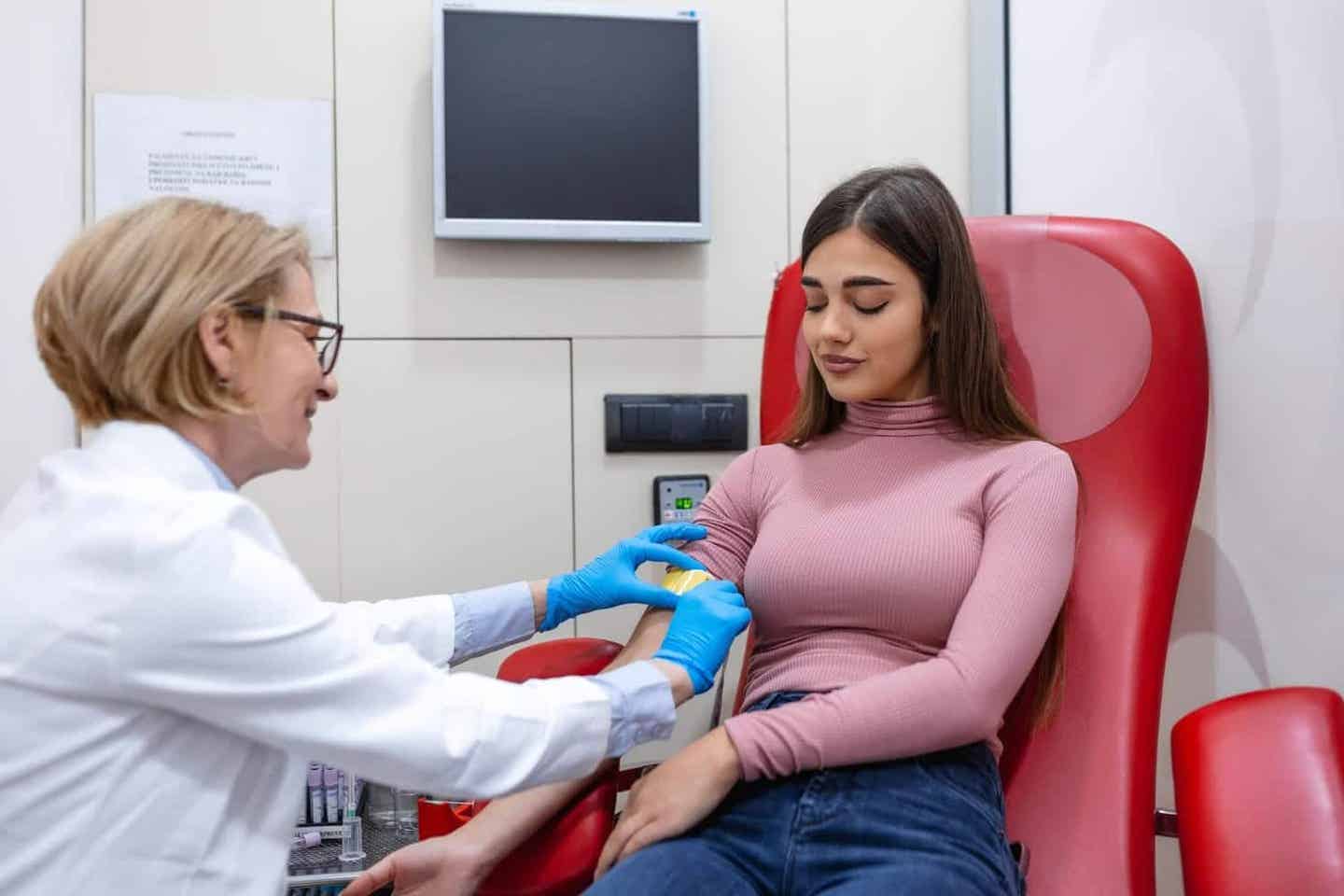Single blood test can predict 30-year heart disease risks for women
The research team evaluated how well high-sensitivity CRP predicted these cardiovascular events, both individually and in combination.

Blood test can predict a woman’s risk of cardiovascular disease decades in advance. (CREDIT: CC BY-SA 3.0)
Research supported by the National Institutes of Health has unveiled that monitoring two types of fat in the bloodstream, along with C-reactive protein (CRP), can predict a woman’s risk of cardiovascular disease decades in advance. This groundbreaking finding has also been published in the New England Journal of Medicine.
According to Dr. Paul M. Ridker, director of the Center for Cardiovascular Disease Prevention at Brigham and Women’s Hospital in Boston and a study author, “We can’t treat what we don’t measure, and we hope these findings move the field closer to identifying even earlier ways to detect and prevent heart disease.”
This extensive study analyzed blood samples and medical data from 27,939 healthcare providers in the United States who participated in the Women’s Health Study. These women, who joined the study between 1992 and 1995 at an average age of 55, were followed for 30 years.
Over this period, 3,662 participants experienced a heart attack, stroke, surgery to restore circulation, or a cardiovascular-related death. The research team evaluated how well high-sensitivity CRP, along with low-density lipoprotein (LDL) cholesterol and lipoprotein(a) (Lp(a)), predicted these cardiovascular events, both individually and in combination.
To better understand the risks, the participants were divided into five groups based on their levels of these three markers. Women with the highest LDL cholesterol levels had a 36% higher risk of heart disease compared to those with the lowest levels. Similarly, those with the highest levels of Lp(a) faced a 33% increased risk, while women with the highest CRP levels had a 70% increased risk.
Related Stories
When the three markers—LDL cholesterol, Lp(a), and CRP—were evaluated together, the findings were even more significant. Participants with the highest levels of all three had more than a 1.5-times higher risk of stroke and over a 3-times higher risk of coronary heart disease compared to those with the lowest levels.
While this study focused on women, researchers believe similar results would likely be found in men. Dr. Ahmed A.K. Hasan, a medical officer and program director at the National Heart, Lung, and Blood Institute (NHLBI), explained, “In recent years, we’ve learned more about how increased levels of inflammation can interact with lipids to compound cardiovascular disease risks. This helps explain why lower levels are often better.”
Inflammation plays a crucial role in cardiovascular health. Immune cells, which normally help the body recover from wounds or infections, can also react to the buildup of cholesterol or plaque in the arteries by sending out inflammatory signals. This creates a hyperinflammatory environment where plaque can form, grow larger, or even rupture, leading to serious cardiovascular events.
To maintain optimal cardiovascular health, the researchers stress the importance of primary prevention. This includes regular physical activity, a heart-healthy diet, managing stress, and avoiding or quitting smoking. For those at higher risk, additional measures might involve medication to lower cholesterol and reduce inflammation. The steps you take earlier in life to support your heart and vascular health can have a lasting impact, correlating with better health outcomes many years down the road.
LDL cholesterol is commonly measured by healthcare providers and can be treated with widely available therapies like statins. However, recommendations for screening Lp(a) and CRP can vary. Some countries advocate for Lp(a) screening since elevated levels are often linked to inherited risks. In the U.S., where universal Lp(a) screening is not standard, tests may be ordered for those with heart disease or a family history of it.
While some treatments are available for high Lp(a) levels, researchers are actively exploring new approaches to personalize and improve these therapies.
Screening for CRP also varies, often depending on individual risk factors or the judgment of the healthcare provider. In 2023, the Food and Drug Administration approved colchicine, an anti-inflammatory therapy previously used for gout, to reduce cardiovascular disease risks in people with atherosclerosis.
Additional anti-inflammatory therapies and approaches are currently under investigation, promising new avenues for the prevention and treatment of cardiovascular disease in the future.
By being proactive about your cardiovascular health, and understanding the significance of these biomarkers, you can take informed steps to reduce your risk of heart disease, potentially safeguarding your health for decades to come.
Note: Materials provided above by The Brighter Side of News. Content may be edited for style and length.
Like these kind of feel good stories? Get The Brighter Side of News' newsletter.



